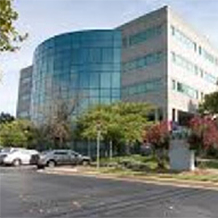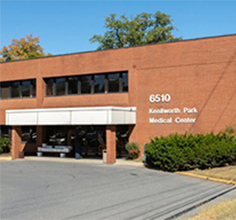
The human body is a remarkable and intricately designed system, equipped with numerous mechanisms to protect us and keep us healthy. The immune system, in particular, plays a central role in defending our bodies against a wide range of threats, from bacteria and viruses to environmental allergens. However, this extraordinary defense mechanism can sometimes go awry, leading to allergies. Particularly concerning to parents is food allergies in children. In this article brought to you by Southern Maryland Medical Group, we share 5 things to know about food allergies in children.
The information here should not be taken as medical advice. It is advised that you see a primary care physician or specialist if you or a loved one experiences symptoms of an allergic reaction. Southern Maryland Medical Group is proud to have licensed primary care doctors ready to see you. Call now to schedule an appointment or arrange a walk-in appointment.
Food allergies, much like other allergies, are a result of an abnormal immune system response. They occur when a child's immune system mistakenly identifies specific proteins found in certain foods as harmful invaders.
Common food allergens include peanuts, tree nuts, milk, eggs, soy, wheat, fish, and shellfish. When a child with a food allergy consumes even a trace amount of the allergenic food, their immune system springs into action, producing antibodies and releasing chemicals like histamine. This immune response leads to a range of allergic symptoms, which can vary from mild to severe.
Food allergies are becoming increasingly prevalent among children, with the Centers for Disease Control & Prevention (CDC) saying 1 in 13 children in the United States are affected by food allergies. The reasons for this rise in food allergies are still being studied, but factors such as genetic predisposition, changes in diet, and environmental influences may play a role.
Prompt diagnosis and intervention are vital for children with food allergies, and identifying the symptoms of food allergies is essential. Allergic reactions to food can manifest in various ways, and they can range from mild to severe. Common symptoms of food allergies in children include:
A combination of symptoms, including swelling of the throat, difficulty breathing, and a drop in blood pressure can result in a severe and life-threatening allergic reaction known as anaphylaxis!
Diagnosing food allergies in children involves a combination of medical history, physical examination, and specific tests. If a child is suspected of having a food allergy, our primary care physician in Hyattsville will gather information about the child's symptoms, diet, and any family history of allergies before performing allergy testing.
Allergy tests can include skin prick tests and blood tests to identify specific allergens. In some cases, an oral food challenge may be conducted under medical supervision to confirm or rule out an allergy.
While allergies cannot be cured, they can often be managed and controlled with medications, lifestyle changes, and allergen avoidance. Careful reading of food labels and clear communication with schools, caregivers, and family members is essential. Children with food allergies should have an emergency action plan in place, including carrying an epinephrine auto-injector (e.g. EpiPen) at all times.
It's crucial to educate children, their peers, teachers, and family members about food allergies, their symptoms, and the importance of avoiding cross-contamination and sharing of allergenic foods.
If you are concerned about your child’s food allergies, then see a licensed physician as soon as possible. Call Southern Maryland Medical Group to schedule an appointment or arrange a walk-in for as soon as possible.
Southern Maryland Medical Group has 3 convenient locations to provide professional medical care services in the Southern Maryland area. Call or schedule an appointment with one of our locations to get medical care help.

5801 Allentown Road, Suite 400 Camp Spring, MD 20746
Phone: 301-868- 0150
Billing Inquiries: 301-552-1270
Fax: 301-868-0243

7500 Greenway Center, Dr #1200 Greenbelt, MD 20770
Phone: 301-486-7580
Billing Inquiries: 301-552-1270
Fax: 301-486-7581

6510 Kenilworth Ave, Ste 1400, Riverdale MD 20737
Phone: 301-618-0771
Billing Inquiries: 301-552-1270
Fax: 301-618-0772